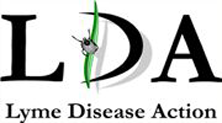Why Lobby?
Because your MP represents your views in parliament. MPs cannot force medical opinion to change, but they can apply pressure to make the case for Lyme heard. Tell your MP your story. Use our briefing note for MPs to explain the position to them.
LDA has been working to alert politicians to the difficulties and injustices that many Lyme disease sufferers still face, and to the damage this is doing to the otherwise good reputation of the UK’s health services.
In April 2012, responsibility for Lyme disease was transferred from the Lyme Borreliosis Unit in Southampton to a completely different team at the Rare and Imported Pathogens Laboratory (RIPL) in Porton Down in Wiltshire. Key staff at the Department of Health also changed, and this signalled a new approach from the authorities.
The team at RIPL have a great deal of expertise in infectious disease, but this small team has other higher priorities in potentially imported diseases such as Ebola and Zika virus. Given how little anyone really knows, it is inevitably taking time to reach an informed consensus, and will take even longer to change entrenched ideas throughout the medical profession.
The problem
- Lyme disease is increasing in the UK
- It can be chronic and severe
- It is prone to misdiagnosis and lack of adequate treatment
- It is present across the UK and people don’t know about it
The solution
Action on Awareness
We hear a constant stream of unsolicited complaints from the public that their doctors either admit to knowing very little about Lyme disease or rule out the diagnosis on spurious grounds. For example:
- “There is no Lyme disease in our area.“
- “Babies under 1 year don’t get bitten.“
- “As you didn’t see a rash, it must be something else.”
- My GP wouldn’t test me, he said “it is just a fashionable disease.”
- “Chronic Lyme doesn’t exist – if someone is just IgG positive, we don’t treat it.”
More effort must be made by health authorities to make doctors and the public aware of the basic facts of Lyme disease.
Public Health England responded by issuing an awareness leaflet for GPs in 2013, a suggested referral pathway in 2014, and more public awareness in 2015 and 2016. A NICE guideline was issued in April 2018 and this will help raise awareness amongst health professionals. The big nut, though, is still to crack – the consultants. This needs action by the doctors’ professional bodies.
Action on Specialist Clinics
At NHS England’s request, the process to develop a NICE clinical guideline for Lyme disease got underway in February 2016, and finally the Guideline was published in April 2018. Read our response in which we point out, yet again, that there are no UK specialists with an understanding of complex Lyme disease cases.
Action on Research
LDA completed documentation of a large number of confirmed uncertainties in the diagnosis and treatment of Lyme disease back in 2013. NICE have now confirmed these uncertainties and funding is badly needed to form these into research proposals. Although there is some UK research on ticks, there are huge gaps in our knowledge of UK Lyme disease.
Our Lobby Work So Far
LDA Trustees have throughout the years been talking to our MPs, and we have been urging anyone who has been affected by Lyme disease to do the same. As a result we now have good support from a number of influential MPs. This has led to:
February 2007: An EDM put forward by Julia Goldsworthy MP got 80 signatures.
November 2007: Julia Goldsworthy MP hosted a meeting at Portcullis House. LDA trustees, a doctor experienced in treating Lyme, and several MPs attended.
February 2008: A second EDM by Julia Goldsworthy attracted 88 signatures.
November 2008: Hugo Swire MP organised a meeting at the House of Commons with interested parties from the Health Protection Agency, doctors and LDA trustees. Notes of this meeting are available.
2008 and 2009: Two online petitions were placed on the government’s ‘number ten’ website. Each gained around 2000 signatures.
2010: LDA had a meeting with the Parliamentary Under Secretary of State for Public Health.
2010 and 2011: Many patients wrote to their MPs, drawing attention to their cases. Several parliamentary questions were asked by a number of MPs, and these continue.
2012: LDA persuaded the Department of Health to participate as an observer at the James Lind Alliance final priority setting meeting.
2013: A meeting took place at the Department of Health with Departmental officials and a relationship was at last established.
2014: There has been continued constructive dialogue with the Department of Health.
2015: We issued a briefing for the House of Lords short debate taking place on October 22nd
2016: We provided a briefing for several MPs at a meeting on November 16th.
2017: We provided a response to the Petitions Committee of the Scottish parliament.
2018: Following formation of an All Party Parliamentary Group (APPG) for Lyme disease, we provided a list of possible questions for the first session of this APPG enquiry. The APPG ceased in 2019.
We continue to provide help to members of parliament when requested and if they raise questions in the house, we get in touch in case they need information.

 Printer Friendly
Printer Friendly